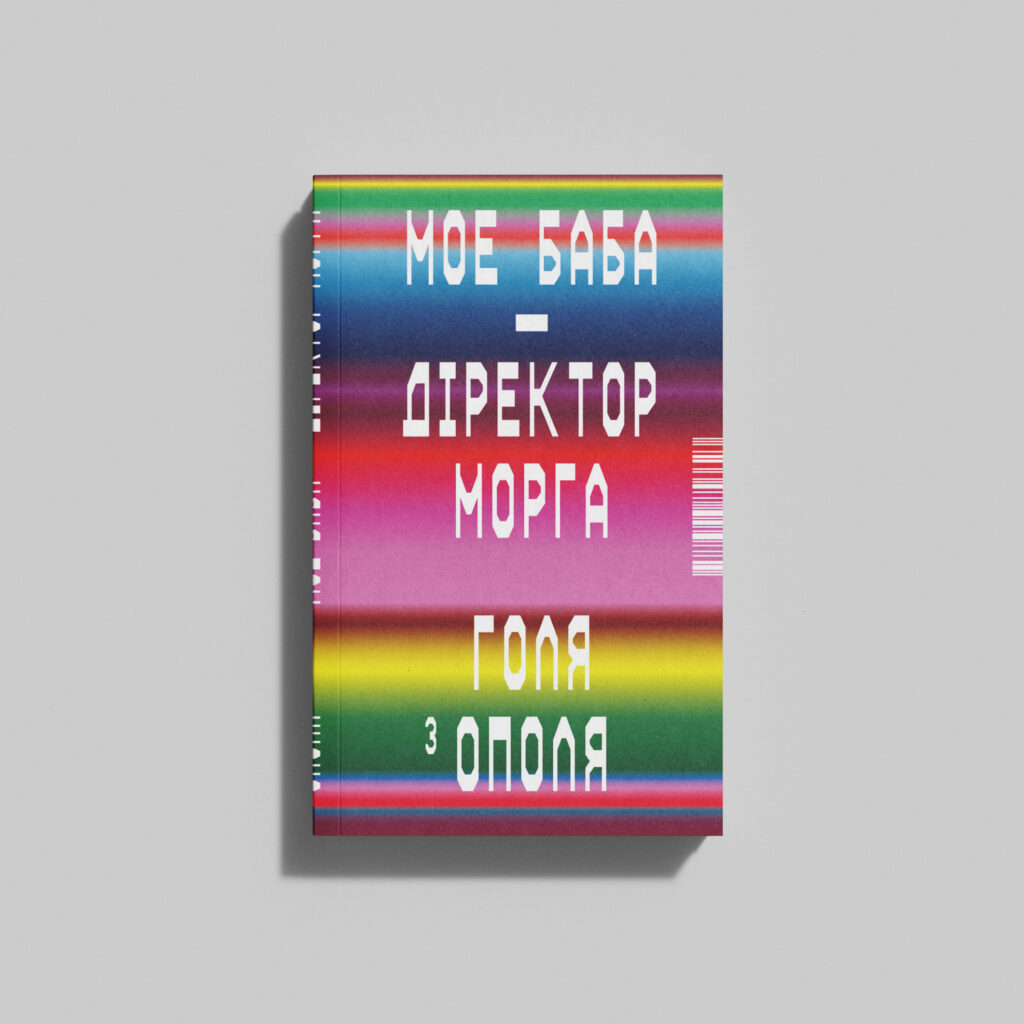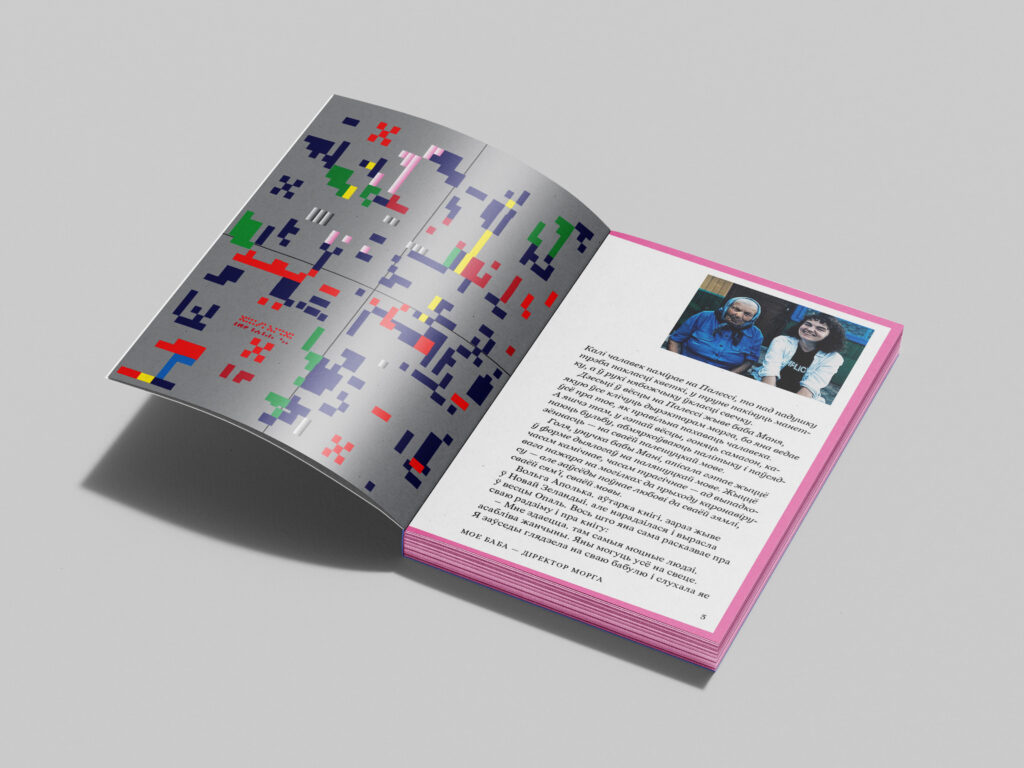Olya comes from the village of Opol in the south of Belarus. Not so long ago we talked to her about the Opol dialect and the magic of Polesie villages. Now our heroine is preparing to publish a book “My grandmother is the director of the morgue”, about the Belarusian tradition of burial. As part of the rubric “Read in emigration” we told you about who inspired Olya to create the work and why it is not taboo to talk about death in Opol.
– Hello, tell me about the upcoming book, what will it be about?
– My book, as I jokingly call it, is a philosophy of life and death in a Polesie village through the prism of my grandmother’s history. That is, it includes important funerary traditions of that place, and also the whole spectrum of emotions, how people live their lives, how they prepare for death. TThe book is dialogues of local people in Polish, and I think that it is the dialogues that can convey the whole spectrum of colours of life and death in Polesie. There’s no lyrics, it’s the words and actions of ordinary people.
– Where did this title come from?
– The title of the book is directly related to the nickname given to my grandmother by the villagers, because my grandmother was the woman in the village who not only knew all the funeral traditions, but was not afraid to wash the dead, help dress them, and put them in the coffin.


– What funeral traditions are you talking about, can you give a couple of examples?
– Examples of traditions: for instance, when a person lies in the coffin, his feet were tied, and when the coffin was lowered in it, it was necessary to untie the feet so that the person could walk in the afterlife, and when they forgot, there were legends that relatives dreamt of the deceased who asked them to untie the feet.
– Tell us how you collected material for the book, what inspired you?
– Of course, the very first and main muse of my book is my grandmother! She will basically be the main character of the book. All other characters are fictional, or their surnames have been replaced with roughly similar ones from the village, but they have nothing to do with real events. So if someone from Opol reads this book, please don’t think that I described you)))! While my grandmother was still alive, I took a lot of notes and absorbed what she knew, how she lived this life, how she prepared for death and so on. I was also often at funerals when I was growing up in the countryside, it’s a common thing there! I think that all of this together and it all came together to form this statement, where I basically just wrote down what I heard and learnt from my grandmother and what I observed in the village on a daily basis.
– Is death something commonplace for the residents of Opol? After all, many people even avoid discussing this topic?
– Death is an ordinary part of life in Polesie. No one avoids death and is not afraid to discuss it, everyone prepares for it in life! It is also an important part of life in the village to go to the cemetery, to look after your family, so to speak!
– How long did it take you to gather material, prepare this idea?
– It took me just over a year to create the book! I think I had nurtured the idea for about two years before that, and then the words just spilled out …. It’s quite a personal story that I share in the book, and it was both easy and hard for me to write it at the same time. Easy because it pours from the heart, and hard because I had to mentally part with my grandmother once again!
– So, are these semi-documentary records?
– Yes, the records in the book are semi-documentary; I managed to write some things down from my grandmother’s words, and some I wrote from memory.


– Will the book be published in the Polesie dialect? How many languages can the book be read in?
– Yes, the book is entirely written in the Polissya dialect, specifically in the Opole language. But simultaneously, there will be a translation into English in the book, so your foreign friends can also buy and understand it, or if you want to learn a little English based on Opole – why not!
– Did you write the book alone?
– I wrote the book myself! And then I was lucky enough to gather a great team to put the book together into the version that will be printed! Talented Belarusian contemporary artist Masha Moroz and designer Igor Yukhnevich became my companions in this matter, and with their help, I believe the book turned out not just a book, but a luxury art object!
– How will this book be interesting for Belarusian and foreign readers?
– In this book, you can not only learn about the unique traditions of Polesie, but also get a little closer to the people from there and look into their everyday life. As if to open the door and listen to what they talk about, what they argue about, what they live their lives about…
And of course, thanks to the incredible art pieces and photographs by Masha, the book can also be viewed as a painting and not only hear the characters but also see them, see the symbols of their culture.
– Do you have a crowdfunding platform? How much funding is needed for the publication of the book?
– My goal is to raise enough money to print 300 copies of the book! That’s about 10,000 euros. I know the goal is ambitious, but I believe I can do it!
You can buy the printed version of the book, which costs 25 euros + delivery, or the electronic version for 5 euros! Depending on what you choose, you’ll get this product by results and will receive it starting in late spring/early summer.
The link to purchase the book is here – https://ko-fi.com/golyazopolya
Read more on the topic: “I grew up, lived, and went to school in Opol. I don’t know how to explain to you quickly what it is to live in the village”. Interview with Olya from Opol.


